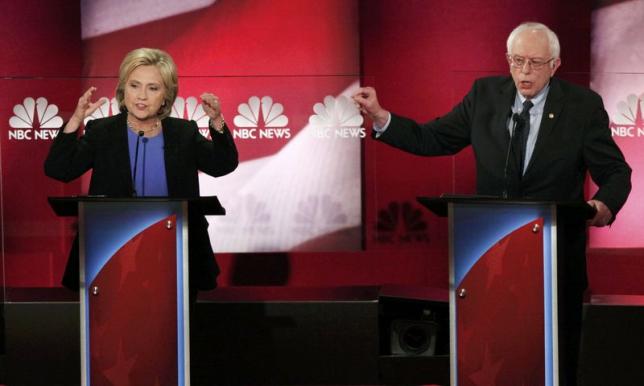Hillary Clinton and Bernie Sanders sparred about U.S. foreign policy in Latin America, and particularly Honduras, during the debate in Miami, Florida. In other debates, they have discussed the Middle East, Libya, Egypt, Russia, China and North Korea, but not Sub-Saharan Africa. Their most noted remarks about that part of the world have been about Rwanda and the so-called U.S. failure to intervene to stop the massacres of 1994. Both echo then Sen. Obama in a 2008 presidential debate with Sen. John McCain:
“Yes, but it’s not just America. This is the problem that we face. We are spending more money on the military than the next nine countries behind us. Where is the U.K.? Where is France? Germany is the economic powerhouse in Europe. They provide health care to all of their people; they provide free college education to their kids. You know what? Germany and France and the U.K. and Scandinavia and the rest of Europe, all of us have got to work together to prevent those types of genocide and atrocities, and we have to strengthen the United Nations in order to do that.”
U.S. policymakers and pundits have repeatedly invoked Rwanda and U.S. responsibility to stop genocide and mass atrocities to justify the U.S./NATO bombing in Libya and Syria. As the U.S. and NATO’s war on Libya began, Pakistani writer Tariq Ali wrote in the Monthly Review, “The sheer cynicism is breathtaking. We’re expected to believe that the leaders with bloody hands in Iraq, Afghanistan and Pakistan are defending the people in Libya. The fact that decent liberals still fall for this rubbish is depressing.” On the fifth anniversary of the 2003 U.S. invasion of Iraq, Ali wrote, “The human cost of this war would, if some other country were doing it, be labeled genocide.”





